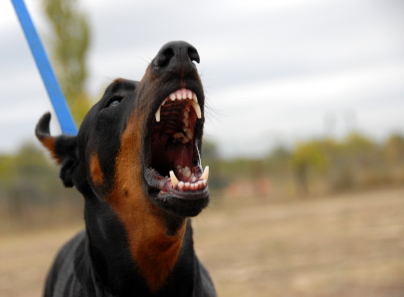When it comes to the Doberman breed, there are some drawbacks that potential owners should consider. One of the main concerns is their reputation for aggression. While it’s true that Dobermans have been used as guard dogs and police dogs in the past, this doesn’t mean that all Dobermans are naturally aggressive. However, due to their strength and protective instincts, proper socialization and training are crucial to prevent any potential aggression from becoming a problem.
In addition to their potential for aggression, Dobermans are prone to certain health issues. One common problem is hip dysplasia, which is a condition where the hip joint doesn’t develop properly. This can result in pain, lameness, and even arthritis. Another health concern for Dobermans is dilated cardiomyopathy, which is a disease that affects the heart muscle and can lead to heart failure. Regular vet check-ups and a healthy lifestyle can help mitigate these risks and ensure the overall well-being of your Doberman.
While Dobermans are generally loyal and intelligent dogs, there are a few considerations to keep in mind. They require a lot of exercise and mental stimulation to prevent boredom and potential destructive behavior. They can also be prone to certain health issues, including hip dysplasia and heart disease. Some individuals may display aggression if not properly socialized and trained. Additionally, their size and strength may be overwhelming for inexperienced dog owners. Responsible ownership, adequate training, and regular veterinary care are essential for ensuring a happy and healthy Doberman.

What is Bad About Doberman?
Doberman Pinschers are known for their loyalty, intelligence, and protective nature. They can make excellent family pets and guard dogs. However, like any breed, Dobermans also have their drawbacks. In this article, we will explore some of the negative aspects and potential challenges of owning a Doberman. It is important to note that while Dobermans have certain characteristics that may be seen as disadvantages, proper training, socialization, and care can help minimize these issues.
1. Aggression
One of the major concerns with Dobermans is their potential for aggression. While Dobermans can be loyal and protective, they have a strong prey drive and can be territorial if not properly trained and socialized from a young age. This breed may exhibit aggression towards strangers or other animals if they perceive them as a threat or if they feel their family is in danger.
It is crucial for Doberman owners to invest time and effort in proper training and socialization. Early and consistent training, exposure to different people and situations, and positive reinforcement can help minimize aggressive tendencies. Additionally, it is important to provide mental and physical stimulation to prevent boredom, which can contribute to aggression.
It is also worth noting that not all Dobermans exhibit aggressive behavior. Proper breeding and responsible ownership play a significant role in shaping a dog’s temperament. However, potential owners should be aware of this breed’s predisposition towards aggression and be prepared to handle it appropriately.
2. Exercise Needs
Dobermans are an active and energetic breed that require a significant amount of exercise. Failing to meet their exercise needs can lead to behavioral issues, including destructive behavior, restlessness, and pent-up energy. If not given an outlet for their energy, they may become frustrated and exhibit undesirable behaviors.
Owners of Dobermans should be prepared to provide regular, daily exercise to keep them physically and mentally stimulated. This can include long walks, vigorous play sessions, and participation in dog sports or activities. Providing an environment that allows for ample exercise and mental enrichment can help prevent behavioral problems associated with a lack of physical activity.
3. Health Concerns
Dobermans are susceptible to certain health issues, which potential owners should be aware of. These health concerns include:
- Dilated Cardiomyopathy (a heart disease)
- Hip Dysplasia (a hip joint disorder)
- Von Willebrand’s Disease (a blood clotting disorder)
- Hypothyroidism (an underactive thyroid gland)
Regular vet check-ups, proper nutrition, and responsible breeding practices can help minimize the risk of these health issues. It is essential for Doberman owners to be proactive in monitoring their dog’s health and addressing any concerns promptly.
4. Socialization Challenges
Dobermans, by nature, are protective and can be wary of strangers. This can make their socialization process more challenging compared to some other breeds. Early socialization is vital to ensure that Dobermans learn appropriate behavior around unfamiliar people, animals, and environments.
Properly socializing a Doberman involves exposing them to various situations, people, and animals in a controlled and positive manner. Puppy socialization classes and regular interactions with different individuals and animals can help develop their social skills and reduce the likelihood of fear or aggression towards new experiences.
5. Grooming Requirements
Dobermans have a short, sleek coat that requires minimal grooming compared to breeds with longer or thicker coats. However, they do shed moderately throughout the year and may shed more during seasonal changes.
To keep their coat healthy and minimize shedding, regular brushing with a grooming mitt or soft brush is recommended. This helps remove loose hair and distribute natural oils throughout the coat. Bathing should be done as needed, using a gentle dog-specific shampoo.
Additionally, owners should pay attention to their Doberman’s ears, which are prone to infections. Weekly ear checks, cleaning when necessary, and proper drying after swimming or bathing can help prevent ear issues.
Are Dobermans a Bad Dog?
No, Dobermans are not inherently bad dogs. Like any breed, they have their unique characteristics and challenges. While aggression, exercise needs, health concerns, socialization challenges, and grooming requirements are some of the potential drawbacks, responsible ownership and proper care can greatly minimize these issues.
Dobermans can be incredibly loyal, intelligent, and loving companions when provided with the right environment, training, and socialization. Their protective nature can be an asset in the right hands, making them excellent family members and guard dogs.
It is important for potential Doberman owners to thoroughly research the breed, understand their specific needs and challenges, and be committed to providing the time, effort, and resources required to raise a happy and well-adjusted dog.
Key Takeaways:
- Dobermans can be protective and aggressive if not properly trained and socialized.
- They require a significant amount of exercise and mental stimulation.
- Dobermans are prone to certain health issues such as heart problems and hip dysplasia.
- Their high energy levels may make them too active for some households.
- Dobermans have a strong prey drive and may not get along well with small animals.
Frequently Asked Questions
Here are some common questions people ask about the potential downsides of owning a Doberman:
1. Are Dobermans aggressive?
Dobermans have a reputation for being aggressive, but it is important to understand that aggression is not inherent to the breed. Like any dog, Dobermans can exhibit aggressive behavior if not properly trained, socialized, or cared for. With early socialization and consistent training, Dobermans can be friendly, loyal, and well-mannered companions. It is important for owners to understand that responsible ownership and positive reinforcement training are key to ensuring a well-behaved Doberman.
Additionally, it’s worth noting that individual dogs may have different temperaments regardless of breed. It is essential to choose a Doberman from a reputable breeder, who focuses on temperament and health, and to properly train and socialize the dog to prevent any potential aggression.
2. Do Dobermans require a lot of exercise?
Dobermans are an active and athletic breed that requires regular exercise to maintain their physical and mental well-being. Without proper exercise and mental stimulation, they may become bored, restless, and potentially destructive. A lack of exercise can contribute to behavioral problems in Dobermans, such as excessive barking, digging, or chewing. It is recommended to provide Dobermans with daily opportunities for exercise, including brisk walks, jogging, or engaging in activities like agility training or obedience trials.
However, it’s important to note that the exercise needs of individual dogs may vary depending on age, health, and personality. Consulting with a veterinarian or a professional dog trainer can help determine the appropriate exercise routine for your Doberman.
3. Are Dobermans prone to health issues?
Like many large dog breeds, Dobermans are prone to certain health issues. Some common health concerns in Dobermans include:
– Dilated cardiomyopathy (heart disease)
– Hip dysplasia (abnormal development of the hip joint)
– Von Willebrand’s disease (a bleeding disorder)
– Hypothyroidism (underactive thyroid gland)
To mitigate the risk of these health issues, it is crucial to obtain a Doberman puppy from a responsible breeder who performs health screenings on their breeding dogs. Regular veterinary check-ups, a balanced diet, and appropriate exercise can also contribute to maintaining the overall health and well-being of a Doberman.
4. Are Dobermans good with children?
Dobermans can be excellent family dogs and can get along well with children if properly trained and socialized from an early age. They are generally loyal, protective, and gentle with their family members, including children. However, it is important to supervise interactions between young children and dogs to ensure safety and teach children how to properly interact with dogs.
As with any dog breed, it is crucial to teach children to respect a Doberman’s boundaries and not engage in rough play or provoke the dog. Early socialization with various people and experiences, as well as positive reinforcement training, can help ensure that a Doberman becomes a well-rounded and reliable family companion.
5. Do Dobermans have a short lifespan?
Dobermans typically have a lifespan of around 10 to 12 years. While this may be considered shorter than the lifespan of some other dog breeds, it is important to note that individual factors such as genetics, diet, exercise, and overall healthcare can influence a Doberman’s longevity.
To promote a longer and healthier life for your Doberman, it is important to provide them with a well-balanced diet, regular exercise, routine vaccinations, preventative healthcare, and regular veterinary check-ups. Additionally, early detection and treatment of any health issues can contribute to their overall well-being.

Top 5 Behavior Problems in Dobermans (And What Can Be Done About It)
While the Doberman breed has many admirable qualities, it’s important to be aware of a few potential drawbacks. One issue is that Dobermans can be prone to certain health problems, such as heart disease and hip dysplasia. This means that they may require more frequent vet visits and potentially costly medical treatments.
Another consideration is that Dobermans have a high energy level and require a lot of exercise. Without proper physical and mental stimulation, they can become bored and develop destructive behaviors. Additionally, their protective nature and strong guarding instincts may make them a challenge to handle for inexperienced owners, requiring consistent training and proper socialization.
